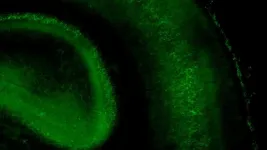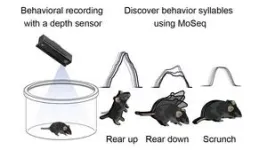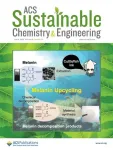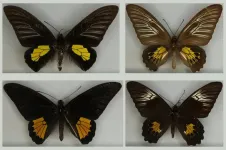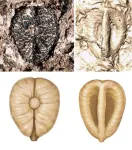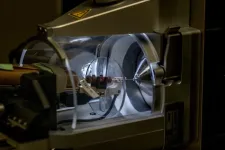(Press-News.org) Not everything in the brain is meant to last. As our brains assemble, trillions of neural connections have to be built or torn down at the right time and place. Otherwise, the seeds of disorders like autism can take root. Cold Spring Harbor Laboratory Assistant Professor Gabrielle Pouchelon studies how the brain is wired early in life. In doing so, she hopes to find the origins of various brain dysfunctions and new ways to treat them.
In a new study, Pouchelon and her team zero in on a process known as pruning. This is when the brain removes unnecessary connections between neurons. The pruning of long-lasting connections is relatively well-known. Pouchelon’s team focuses on special early connections that get cut to make way for long-lasting circuits in the mature brain. Though temporary, these early connections may play a critical role in shaping developing brain circuits.
Pouchelon’s lab has now discovered that a receptor protein named mGluR1 helps regulate the timing of these temporary connections in the mouse brain. Her team found that without mGluR1, neural connections stick around too long in the brain region that controls and processes touch via the whiskers. When the sensory circuit fails to mature properly, the mice demonstrate atypical behaviors. For example, they don’t stand on their hind legs and sniff around the way other mice do.
Importantly, the team notes that this critical step in circuit development occurs during the first week after birth. “The way the receptor works seems to be different than what has been described in adulthood,” Pouchelon says. “In the context of neurodevelopmental disorders, that means when we try to target developmental defects, we could have a totally different therapeutic effect at different stages during development.”
Pouchelon’s team hopes their discovery may serve as a guide for designing future therapeutics to treat brain dysfunction early. “The brain is a wonderful machine whose job is to adapt,” says Dimitri Dumontier, the postdoc in Pouchelon’s lab who co-led this study. “So, when you study neurodevelopmental disorders in adults or even teenagers, it is difficult to identify which mechanisms are causing the symptoms. That is why understanding early milestones of brain development is key.”
The hope is that by figuring out exactly how the brain matures, scientists can rescue this process early. This could help prevent symptoms of neurological disorders like autism from showing up in the first place. After all, the world is difficult enough to navigate as is. Pouchelon and Dumontier’s work could someday help make life easier for countless young people.
END
Finding the sweet spot in brain development
2024-07-01
ELSE PRESS RELEASES FROM THIS DATE:
New national volunteer leaders to guide American Heart Association into second century
2024-07-01
DALLAS, July 1, 2024 — The American Heart Association, celebrating 100 years of lifesaving service as the world’s leading nonprofit organization focused on heart and brain health for all, has named its volunteer leadership for fiscal year 2024-25. Keith Churchwell, M.D., FAHA, serving as the new volunteer president, and Marsha Jones, continuing a two-year term as volunteer board chairperson, will help guide the Association as it enters its second century. Churchwell and Jones are long-time volunteer leaders for ...
Geological Society of America reduces student membership dues to $25
2024-07-01
FOR IMMEDIATE RELEASE
1 July 2024
The Geological Society of America
Release No. 24-06
Contact: Jason Elkins
+1-303-357-1026
jelkins@geosociety.org
Boulder, Colo., USA: The Geological Society of America (GSA) is excited to announce a significant reduction in membership fees for students. Effective 1 July 2024, undergraduate and graduate students majoring in geology or related sciences can sign up for an annual student membership for just $25. This initiative underscores GSA's commitment to supporting the next generation of geoscientists by making membership more accessible and affordable.
The ...
Melanin from cuttlefish ink as a sustainable biomass resource
2024-07-01
Every year, the negative effects of human activities on the environment become increasingly clear. From climate change and microplastics to the endangerment and extinction of countless species, it is evident that we need to find new ways to achieve sustainability. Fortunately, many research groups in prominent fields like chemistry and materials science are tirelessly working to develop solutions to get us closer to circular and sustainable economies.
One area that has attracted much attention in this regard is biomass upcycling. It refers to the transformation of naturally available organic materials into ...
AI-powered study explores under-studied female evolution
2024-07-01
Pioneering AI-powered research on butterflies has probed the under-studied evolution of females and adds to a debate between the founding fathers of evolution.
The University of Essex study – published in Communications Biology – explores a controversy between Victorian scientists Charles Darwin and Alfred Russel Wallace.
Darwin thought males had more variation, as females often chose mates based on male appearance.
Whereas Wallace thought natural selection across sexes was the biggest factor in difference.
For over a century, scientists ...
New findings may fix the replicability crisis in microbiome research
2024-07-01
Our bodies are inhabited by trillions of microorganisms, with specific microbes unique to each individual. Through experimentation, scientists have pinpointed certain factors that account for variation in the gut: diet, living conditions, exercise and maternal line. Now, scientists at University of California San Diego have discovered another factor that affects the composition of the gut microbiome: time of day. In fact, the scientists have found that time of day is such an important factor that they’re calling on the National Institutes of Health (NIH) to require researchers ...
Nanorobot with hidden weapon kills cancer cells
2024-07-01
Researchers at Karolinska Institutet in Sweden have developed nanorobots that kill cancer cells in mice. The robot’s weapon is hidden in a nanostructure and is exposed only in the tumour microenvironment, sparing healthy cells. The study is published in the journal Nature Nanotechnology.
The research group at Karolinska Institutet has previously developed structures that can organise so-called death receptors on the surface of cells, leading to cell death. The structures exhibit six peptides (amino acid chains) assembled in a hexagonal pattern.
“This hexagonal nanopattern of peptides becomes a lethal weapon,” explains Professor ...
Largest ever genetic study of age of puberty in girls shows links with weight gain
2024-07-01
Genes can indirectly influence the age at which girls have their first period by accelerating weight gain in childhood, a known risk factor for early puberty, a Cambridge-led study has found. Other genes can directly affect age of puberty, some with profound effects.
In the largest study of its kind to date, an international team led by researchers at the Medical Research Council (MRC) Epidemiology Unit, University of Cambridge, studied the DNA of around 800,000 women from Europe, North America, China, Japan, and Korea.
Published today in Nature Genetics, the researchers found more than 1,000 variants – small changes in DNA – that ...
Sixty-million-year-old grape seeds reveal how the death of the dinosaurs may have paved the way for grapes to spread
2024-07-01
If you’ve ever snacked on raisins or enjoyed a glass of wine, you may, in part, have the extinction of the dinosaurs to thank for it. In a discovery described in the journal Nature Plants, researchers found fossil grape seeds that range from 60 to 19 million years old in Colombia, Panama, and Peru. One of these species represents the earliest known example of plants from the grape family in the Western Hemisphere. These fossil seeds help show how the grape family spread in the years following the death of the dinosaurs.
“These are the oldest grapes ever found in this part of the world, and they’re a few million years ...
AI model finds the cancer clues at lightning speed
2024-07-01
Researchers at the University of Gothenburg have developed an AI model that increases the potential for detecting cancer through sugar analyses. The AI model is faster and better at finding abnormalities than the current semi-manual method.
Glycans, or structures of sugar molecules in our cells, can be measured by mass spectrometry. One important use is that the structures can indicate different forms of cancer in the cells.
However, the data from the mass spectrometer measurement must be carefully analysed by humans to work out the structure from the glycan fragmentation. This process can take anywhere from hours ...
Individuals can tell if their memories are trustworthy, new study shows
2024-07-01
How much trust should we put in our memories? New research shows we have a good awareness of when we are recalling events accurately – and when our brain is filling in gaps with general knowledge.
Memories are a blend of recalled details and ‘prototypical’ information, but a study at the University of Birmingham has shown that when prototypes appear more prominent, we become less confident in the recollection.
This means that we are able to distinguish between these two types of memory, and accurately assess how ...
